As an avid RV enthusiast, nothing beats the feeling of hitting the road and exploring new destinations in your home on wheels. However, a dead battery is a nightmare that can throw a wrench in your travel plans. Even brand new RV batteries can die unexpectedly, leaving you stranded in the middle of nowhere. In such a situation, it’s essential to know what to do to get back on the road. Here are some crucial tips for your peace of mind on your next adventure.
Table of Contents
RV Battery: What It Is And How It Works
Are you someone who loves to travel? Do you love exploring new places and experiencing new things? If yes, then an RV or a recreational vehicle might be the perfect option for you. RVs offer a sense of freedom since you can travel anywhere you want, and you don’t have to worry about accommodations. And in an RV, the battery plays a crucial role in enabling your travels. Let’s discuss what an RV battery is and how it works.
A recreational vehicle battery, commonly known as an RV battery, is a deep-cycle battery designed to provide ample power for RVs so that you can run all your accessories like lights, television, air conditioners, entertainment systems, etc. The typical RV battery is a 12-volt lead-acid battery, similar to the battery in a car. However, the RV battery is different in terms of capacity and usage. RV batteries have a high storage capacity, and they are designed to discharge a high amount of power over a more extended period. [1]
The RV battery works on the principle of storing electrical power that it receives from the RV’s alternator or external sources like a solar panel or generator. The battery then provides power to run the various appliances and accessories in the RV. The battery is just one component of the RV’s electrical system. Other components include the converters, inverters, and chargers that regulate and manage the power flow.
An RV battery is a significant component of an RV’s electrical system. It provides power and enables you to enjoy all the comforts of home while on the go. Understanding your RV’s battery type, capacity, and power requirements can help you make an informed decision while choosing the right battery for your RV. Additionally, proper care and maintenance can help you increase your battery’s lifespan and ensure uninterrupted travels. So, get on the road with your RV and enjoy your travels while ensuring your RV battery is in top condition.
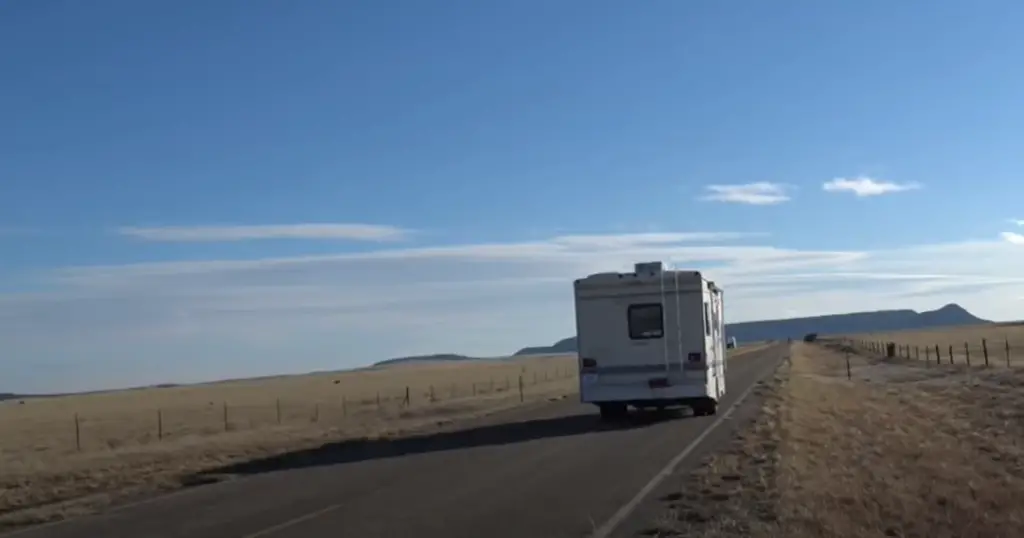
Common Reasons for RV Batteries to Die
Many RVers have experienced a dead battery while traveling on the road, leaving them stranded without electricity and power. Having a dead RV battery is not an uncommon occurrence, and it can be frustrating when you are relying on your RV to provide you with comfort and convenience while traveling.
- Lack of Maintenance – Neglecting your battery can cause issues to arise, and it can lead to a shorter lifespan. It’s essential to check and maintain your battery regularly. This includes keeping the battery clean, charging it correctly, and checking the water levels regularly. Failure to maintain your battery can lead to corrosion, sulfation, and other issues that can cause it to die prematurely. [2]
- Parasitic Drain – Another reason why RV batteries die is due to a Parasitic Drain. Parasitic Drain is where a component in your RV continues to draw power from your battery, even when it’s not in use. Some common culprits include outdated electronics, especially radios, or other components that may malfunction. Even seemingly insignificant factors such as a small light bulb can contribute to parasitic drain. It’s important to identify the source of the parasitic drain and rectify the issue before it’s too late.
- Overcharging – Overcharging can also cause your RV battery to die. Overcharging happens when you overcharge your deep-cycle RV battery, causing the water levels to evaporate, and internal components to become damaged. The battery may start to fail due to overcharging, leading to a shorter service life. To prevent overcharging, you should use a good quality battery charger that is designed for RV batteries and carry out regular maintenance, such as checking the water levels. [2]
- Under-charging – Undercharging your RV battery is another common reason why batteries die. Undercharging happens when the battery doesn’t receive enough charge, causing the battery to lose its lifespan. Over time, under-charging can lead to sulfation and other damages that can cause your battery to fail suddenly. To prevent undercharging, you should ensure that your RV’s charging system is functioning correctly. You may use a battery monitoring system to check the status of your battery and take necessary action. [2]
- Extreme Temperature Changes – Extreme temperature changes can also affect your RV battery and lead to its death. When temperatures are high, your battery may become overcharged, and when temperatures are low, your battery may not charge correctly or may even freeze. It’s best to store your RV battery at room temperature, and keep it away from direct sunlight or extreme temperatures. Additionally, you may use an insulated battery box or keep the battery inside during extreme weather changes.
There are many reasons why RV batteries die, from lack of maintenance to extreme temperature changes. To prevent your battery from dying, you should ensure you carry out regular maintenance, identify parasitic drains, and prevent overcharging and undercharging. You should also ensure that you store your battery correctly, especially during extreme temperature changes. With proper maintenance and care, you can extend the life of your RV battery and avoid the frustrating experience of getting stranded.
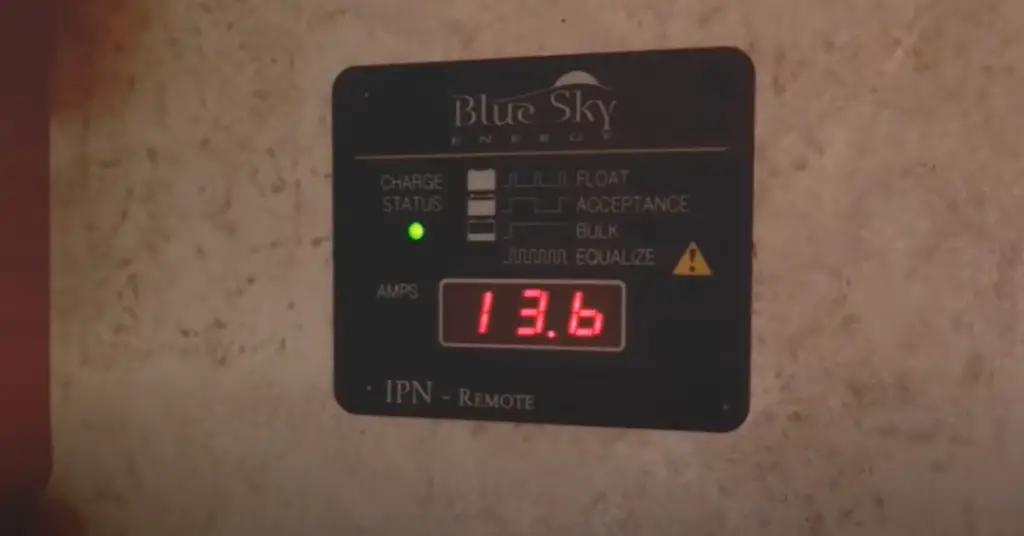
New RV Battery Died: Step-By-Step Guide
Having a brand new RV battery can be exciting, especially if you’re planning on going on a long road trip. But sometimes, things don’t go as planned and your battery dies unexpectedly. If you’re wondering what to do in this kind of situation, don’t fret. Here we’ll provide you with a step-by-step guide on what to do if your new RV battery dies.
Step 1: Check the voltage of the battery
The first thing you should do is check the voltage of the battery. You can do this by using a voltmeter. If the voltage is below 12.6 volts, then the battery may be discharged. However, if the voltage is below 10.5 volts, then the battery is most likely dead. Also, make sure that the connection of the battery is secure and not corroded.
Step 2: Charge the battery
If the battery is discharged, the next step is to charge it. You can either charge it while it’s still connected to the RV or remove it and charge it separately. To charge the battery, you will need a battery charger. Connect the charger to the battery and set it to the appropriate level (usually 12 volts). Make sure that the charger is unplugged before connecting the battery and plugging it in.
Step 3: Install a new battery
If the above steps do not work, it may be time to replace the battery. Remove the old battery from your RV and install a new one. Make sure that the new battery is of the same type, size, and voltage as the old one. Installing a new battery is relatively easy and can be done with a few basic tools.
Step 4: Take preventive measures
To avoid battery shutdowns in the future, you should take preventive measures. This includes regularly maintaining your battery, cleaning the terminals, and checking the voltage. You should also disconnect your battery when your RV is not in use for an extended period.
While a dead RV battery can be a frustrating experience, you don’t need to panic. With a little bit of knowledge and some basic tools, you can easily fix the issue. By following the above steps, you can jump-start your battery, charge it, or replace it if required. Furthermore, taking preventive measures can go a long way in preventing battery shutdowns in the future.
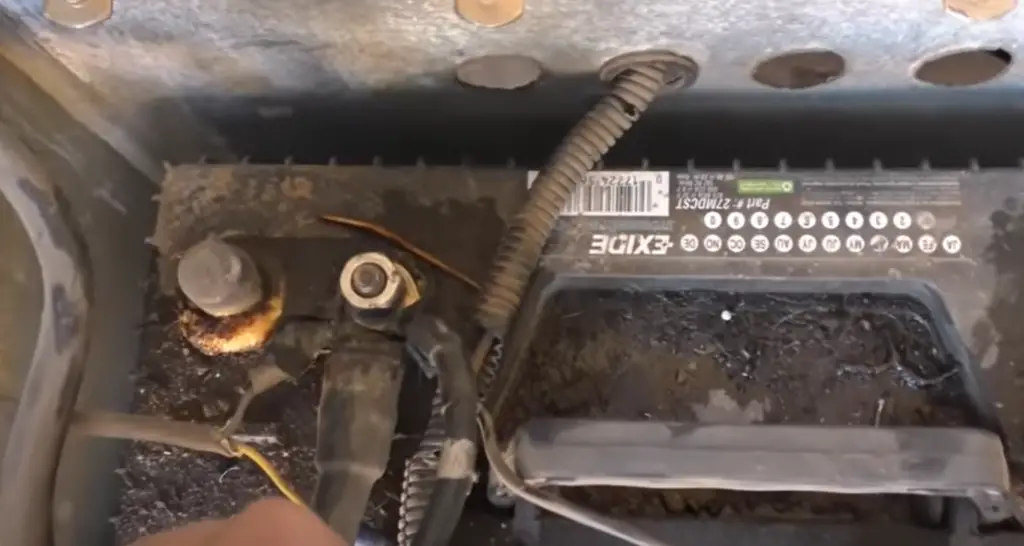
How to Prevent a Dead RV Battery?
When you’re exploring the great outdoors, you want your RV to run smoothly. However, a dead battery can quickly put a halt to your travels. You want to be prepared and avoid this frustrating situation.Now we’ll be sharing some tips on how to prevent your RV battery from dying.
Tip 1: Invest in solar panels
The sun is an excellent source of renewable energy that you can harness to keep your RV’s battery charged. Solar panels are a popular option for RVers as they are environmentally friendly, cost-effective, and have low-maintenance requirements. Solar panels can quickly charge your RV battery as long as there is sunlight. They can also help offset the cost of running your onboard electrical systems.
Tip 2: Prioritize energy conservation
One way to prevent your RV battery from dying is to limit the amount of electricity you use. This means turning off your lights, minimizing use of air conditioning or heating systems and other electronics, and keeping your RV’s systems running efficiently. It’s crucial to keep an LED flashlight handy instead of relying on constant overhead lighting. You should also use natural light as much as possible. Turn off electronics when you’re not using them. It’s a small adjustment in your daily habits that can tremendously save energy and extend the lifespan of your RV battery.
Tip 3: Check your battery’s water levels regularly
Regular inspection of the water levels in your RV battery can prevent a dead battery. Ensure you only use distilled water to refill. You mustn’t let your battery run low on water as this can cause damage to your battery cells and shorten the lifespan of your RV battery.
Tip 4: Use an RV battery charger
An RV battery charger is a helpful tool that keeps your battery charged when it’s in storage or parked in your campsite for an extended period. RV battery chargers can automatically charge your battery as needed and help prevent overcharging. This is a useful investment for RVers who don’t use their RVs frequently or for long periods.
Tip 5: Keep your RV battery clean
Dirt and debris can build up on your RV’s battery, which can cause damage or reduce its efficiency. Regular cleaning can prevent this. Use a wire brush and baking soda to clean the battery connections, cables, and terminals to remove any corrosion. Ensure the connections are tight, and the battery is securely mounted. [3]
Keeping your RV on the road goes beyond fuel and maintenance checks, it’s important to prioritize your RV’s electrical systems too. Following these tips will help prevent your RV battery from wearing out or dying, and keep your RV serving you for years to come. Invest in solar panel installation, practice energy conservation, check the water levels in your battery, use an RV battery charger, and keep your RV battery clean, and you’ll be on your way to a happy, problem-free trip!
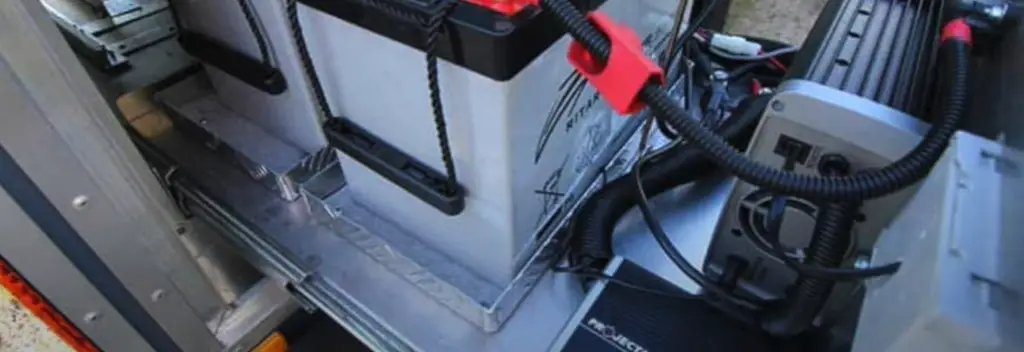
RV Battery Maintenance
If you are someone who loves to take their RV on long road trips, it is important to ensure that your RV battery remains in tiptop condition. After all, a dead battery can quickly put an end to your journey. In order to avoid any interruptions to your travel plans, it is crucial to take proper care of your RV battery. To help you with this, we have compiled a guide on RV battery maintenance that every traveler should be aware of. So, let’s dive in and explore how you can ensure that your RV battery remains in good shape.
- Understand Your RV Battery Type
Before you start maintaining your RV battery, it is important to understand what type of battery you have. Most RVs have either lead-acid or AGM batteries. The upkeep of both these types is different, therefore, it is essential to know the type of battery your RV has. Typically, lead-acid batteries require more maintenance since they require water refilling. On the other hand, AGM batteries are sealed, making them maintenance-free.
- Keep a Check on Voltage
Ensure that you regularly check your RV battery’s voltage with a multimeter. A healthy battery should give a voltage reading of 12.6 volts or higher. If the reading is below this, then your battery is likely getting discharged. If the reading is consistently low, it is time to consider getting a new battery.
- Charge Your Battery Regularly
Charging your RV battery regularly is vital for optimum performance. You should keep your battery plugged in while parked, especially during periods of inactivity. In addition, you should invest in a battery charger or solar panel that can be used to keep your battery charged up when on the go. Keeping your battery fully charged will ensure it maintains its longevity.
- Clean Your Battery Terminals
Over time, corrosion can build up on your battery terminals. This can cause poor battery performance and even a dead battery. To avoid this, it is important to clean your battery terminals regularly. Make sure your RV is unplugged and the battery is disconnected before you start cleaning the terminals. You can clean them with a mixture of baking soda and water. This mixture will fizz up, and the acid will be neutralized. Use a toothbrush to gently scrub the terminals.
- Store Your Battery Appropriately
Lastly, it is important to store your battery properly during months when you are not using your RV. Ensure that your battery is clean and fully charged when storing it. You should also disconnect it and keep it in a dry place. During very cold weather, you can keep your battery indoors to avoid extreme temperatures that could damage it.
Taking care of your RV battery is imperative if you want to avoid being stranded mid-journey. Whether you have a lead-acid or AGM battery, regular maintenance is essential. By keeping a check on voltage, charging your battery regularly, cleaning the terminals, and storing the battery appropriately, you can extend the life of your RV battery significantly. With these tips in mind, you can enjoy your RV trips with the peace of mind that your battery is in good shape.
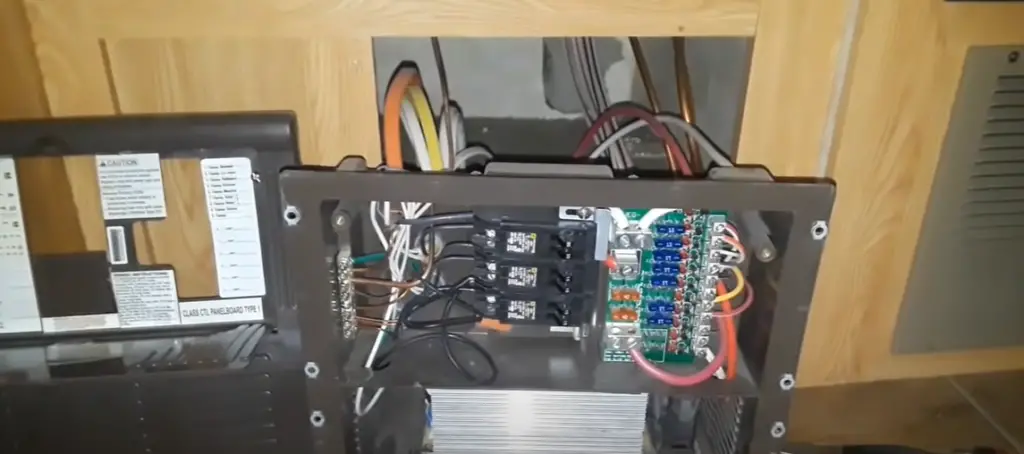
FAQ
Can a completely dead RV battery be recharged?
The short answer is yes, a dead RV battery can be recharged. But whether it’s successful or not depends on a few factors. First, consider how long the battery has been dead. If it’s been a while, there may be permanent damage to the battery that cannot be reversed. Additionally, if the battery has been discharged to a very low voltage, it may not accept a charge. However, if the battery is relatively new and hasn’t been sitting dead for too long, it’s worth a try to recharge it.
How do you trick a dead battery to charge?
Here are the steps to follow:
- Position the RV with the dead battery close enough to a vehicle with a charged battery to use jumper cables (or have a portable jump starter handy).
- Connect the positive cable first to the dead battery, then to the charged battery.
- Connect the negative cable to the charged battery, then to a metal part of the RV frame, away from the dead battery.
- Wait 10-15 minutes while the dead battery charges from the charged battery.
- Disconnect the cables in reverse order.
Is it OK to charge a dead battery?
Yes, it’s perfectly safe to charge a dead RV battery, as long as you follow proper safety guidelines and observe the battery during the charging process. When charging, check the battery regularly to ensure it isn’t overheating. A warm battery is normal, but if it becomes hot to the touch, stop charging immediately. Additionally, never leave a charging battery unattended for an extended period. Follow the charger’s instructions for best results.
Useful Video: How To Keep Your RV House Battery From Dying Too Soon |5 Minute Tip
Conclusions
A dead RV battery is an inconvenience that can disrupt your travel plans and cause unnecessary stress. However, with the right tools and knowledge, you can get back on the road and enjoy your adventure. Remember to check the battery’s charge level, use a jump starter or battery charger, maintain the battery, replace it when needed, and have backup power sources. By following these tips, you’ll ensure a smooth and hassle-free RV trip every time.
References:
- https://lifelinebatteries.com/blog/everything-you-need-to-know-about-rv-batteries/#:~:text=RV%20batteries%20are%20lead%2Dacid,of%20sulfuric%20acid%20and%20water.
- https://rvlife.com/why-does-my-rv-battery-keep-dying/
- https://www.gorving.com/tips-inspiration/how-tos/not-another-dead-rv-battery#:~:text=The%20only%20way%20to%20prevent,life%20expectancy%20of%20your%20batteries.





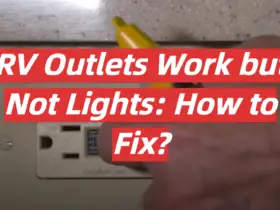
Leave a Reply